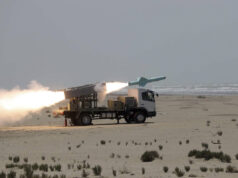The Horn of Africa has entered a period of profound change. Renewed ties between Ethiopia and Eritrea in late 2018 have led to a rapprochement between Eritrea and Somalia. Meanwhile, reports suggest that Eritrea will also renew its relations with Sudan and Djibouti in the months ahead. And in an effort to take advantage of the region’s high profile and emerging stability, Ethiopia’s ambitious leader has even floated the idea of reviving the landlocked country’s navy.
With so many elements in flux, Somalia’s leaders and neighbors alike are asking how the country will navigate this new normal as it continues to struggle with complex internal problems. Ethiopia has been pursuing reconciliation both internally and externally since the African giant’s new prime minister, Abiy Ahmed, arrived on the scene in April 2018. While the premier’s push has had mixed results domestically, rapidly improving ties between various East African countries have helped stabilize the region.
Even Eritrea, previously one of the region’s main troublemakers, buried the hatchet with Somalia in July. This was no small feat considering accusations that Eritrea covertly supported Islamic militants in Somalia resulted in U.N. sanctions against Asmara in 2009. And thanks to improving ties among Asmara, Addis Ababa and Mogadishu, Somalia joined other members of the international community in lifting sanctions against Eritrea in a vote at the U.N. Security Council on Nov. 14.
Ethiopia’s prime minister has been the catalyst for much of this reconciliation, compelled as he is by the country’s landlocked geography and the need for sea access. To achieve this, Abiy has acquired stakes in various ports — including Port Sudan, the Port of Djibouti and Berbera in the breakaway republic of Somaliland — and has promised to boost transport links with Somalia through joint investment in roads and ports under Mogadishu’s control (the precise ports remain unclear, however). If the deal materializes, Somalia could improve its trade options through supply routes to and from Ethiopia’s growing market of 100 million people.
Until recently, Djibouti has had a near monopoly on goods coming in and out of Ethiopia, but cultivating alternatives in Somalia will likely not become a priority for Addis Ababa due to Somalia’s instability and corruption, Somaliland’s desperation to ingratiate itself with Ethiopia and the landlocked giant’s greater access to other ports. Still, a more stable Somalia could gain greater connections to supply chains through Ethiopia and wealthy partners (such as China or the United Arab Emirates) willing to invest in infrastructure deals.
Ethiopia could create opportunities for Somalia, but there are plenty of hurdles to overcome before relations between Mogadishu and Addis Ababa acquire more normalcy. At the most basic geopolitical level, Ethiopia has long meddled in Somalia to assert its dominance. While modern Somalia has been collapsing or near collapse since the early 1990s, Mogadishu once posed a major threat to Addis Ababa. Because of this, it remains an open question as to how far Abiy’s push for reform and reconciliation can extend to Somalia. After a long history of rivalry, Ethiopia will struggle to secure its interests and promote security in Somalia without restoring Mogadishu’s previous position as Addis Ababa’s rival.






